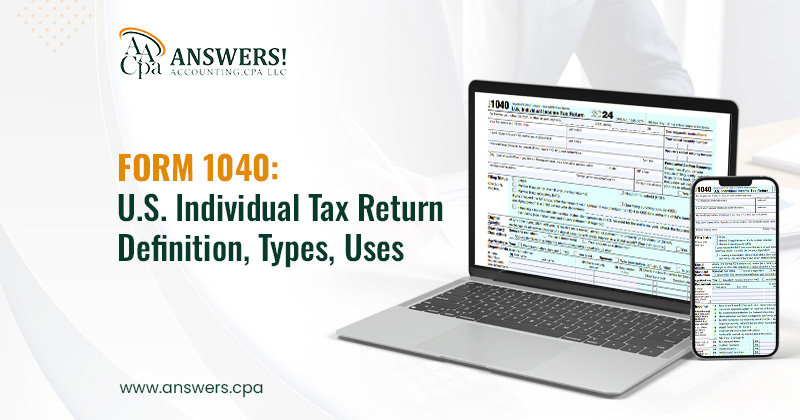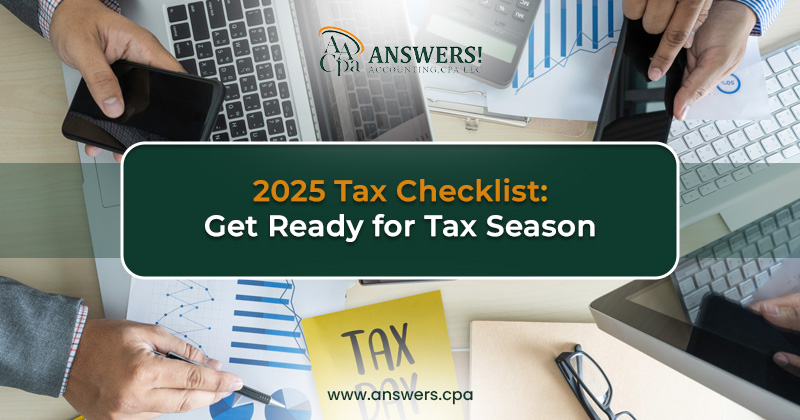5 Smart Small Business Tax Planning Strategies to Help You Save Money
The tax season, while stressful, is crucial for small businesses. Smart tax planning lays the groundwork for success. By strategically managing taxes, owners can save money, ensure legal compliance, and pave the way for long-term growth.
Small business owners can easily navigate the tax season and build a strong financial foundation. Here are 5 tax strategies to save money and set the stage for future business success.
1- Choose the Right Business Structure:
Your business structure can significantly impact your taxes. Each option comes with different tax implications, so it’s crucial to understand these before deciding on a structure. Let’s break down the most common business structures and their tax implications:
-
1. Sole Proprietorship: This is the simplest structure where one person owns and runs the business.
Tax Implications: The business's income and expenses are reported on the owner's personal tax return Schedule C (Form 1040). The owner pays taxes at their tax rate. There's no separate tax filing for the business.
-
2. Partnership: Two or more individuals come together to own and run a business.
Tax Implications: The partnership files an informational return (Form 1065), but partners pay taxes individually on their share of the business's income and expenses. This is like a sole proprietorship but with multiple owners.
-
3. Limited Liability Company (LLC): An LLC offers the flexibility of a partnership with the liability protection of a corporation.
Tax Implications: An LLC can choose to be taxed as a partnership (default) or as a corporation. Profits and losses are passed through to the owners' tax returns if taxed as a partnership. If taxed as a corporation, the business pays corporate income taxes, and the owners pay taxes on distributions of profits.
-
4. Corporation: A corporation is a separate legal entity from its owners.
Tax Implications: The corporation files its tax return (Form 1120) and pays corporate income taxes. Owners receive dividends from the corporation, which are then taxed at their individual income tax rates.
Key Factors to Consider:
-
• Liability Protection: How much protection do you need from personal liability for business debts? Corporations offer the strongest protection, followed by LLCs.
-
• Tax Rates: Do you anticipate higher profits and would benefit from a lower corporate tax rate?
-
• Administrative Burden: How much paperwork and administrative complexity are you willing to handle? Sole proprietorships and partnerships are typically less complex than LLCs and corporations.
2- Maximize Your Tax Deductions:
A deduction reduces the amount of business income that can be taxed. By carefully tracking your business expenses and staying up to date with tax laws, you can maximize your deductions. This can lead to significant savings and increase your overall profitability. Here's a breakdown of common business deductions and how to make the most of them:
Common Business Deductions
- • Home Office Deduction: If you use a portion of your home for business purposes, you may be eligible to deduct a portion of your home expenses, such as rent, mortgage interest, utilities, and insurance.
- • Business Travel Expenses: Travel expenses directly related to your business, including airfare, hotel, meals, and car rentals, are deductible.
- • Office Supplies and Equipment: The cost of purchasing or leasing office supplies, computers, software, and other equipment is deductible.
- • Marketing and Advertising Expenses: Costs associated with promoting your business, such as website development, online advertising, and print materials, are deductible.
- • Professional Fees: Fees paid to accountants, lawyers, and other professionals for services related to your business are deductible.
- • Internet and phone expenses: Interest paid on business loans is deductible.
Maximizing Your Deductions
- • Keep Accurate Records: Maintain meticulous records of all your business expenses, including receipts, invoices, and bank statements.
- • Consult with a Tax Professional: An accountant or tax advisor can help you understand the latest tax laws and identify all the deductions you're entitled to.
- • Stay Informed: Tax laws are constantly changing, so it's important to stay updated on any new regulations or deductions.
- • Take Advantage of Tax Credits: In addition to deductions, there are various tax credits available for small businesses, such as the research and development tax credit and the work opportunity tax credit.
By taking advantage of all the deductions available to you, you can significantly reduce your tax liability and put more money back into your business.
Read Article- Tax Advisory Services Checklist for Businesses
3. Implement Retirement Plans
Establishing retirement plans for yourself and your employees not only helps secure your financial future but also provides valuable tax benefits. Consider these retirement plan options to reduce taxable income and save for retirement:
a. Simplified Employee Pension (SEP) IRA
A SEP IRA is a retirement plan that allows employers to make contributions to individual retirement accounts for themselves and their employees. Contributions are tax-deductible, and the plan is relatively easy to set up and maintain. This option is particularly beneficial for small businesses with few employees.
b. 401(k) Plan
A 401(k) plan allows employees to contribute a portion of their salary to a retirement account on a pre-tax basis. Employers can also make matching or non-elective contributions, which are tax-deductible. Implementing a 401(k) plan can attract and retain talented employees while providing tax advantages for the business.
c. Solo 401(k) Plan
For self-employed individuals or business owners with no employees, a Solo 401(k) plan offers high contribution limits and tax benefits. Contributions are tax-deductible, and the plan provides flexibility in investment options. This is an excellent option for maximizing retirement savings while reducing taxable income.
4. See if You Qualify for Any Tax Credits:
Tax credits are a great way to reduce your tax bill. Unlike deductions, which lower your taxable income, credits directly reduce the amount of taxes you owe. Here are a few common tax credits your business might qualify for.
Work Opportunity Tax Credit (WOTC). This offers a tax incentive to businesses that employ individuals from specific groups facing employment challenges.
Small Employer Health Insurance Credit. Businesses that offer health coverage to their employees can claim this tax credit to offset the cost.
Clean energy credits. If your business invests in clean energy projects, you may be eligible for a tax credit.
Read Blog- Understanding Bookkeeper Near Me
5. Hire a Tax Advisor:
Navigating tax strategies can be complex. Tax laws are constantly evolving, and many regulations are situation-specific. A tax advisor provides expert guidance, helping you make informed decisions to minimize your tax burden and set your business on a path to success. Here are some ways they can help you:
-
• Stay up to date on the tax changes that may impact your business.
-
• Ensure you stay compliant with local, state, and federal requirements.
-
• Help you through audits and disputes.
-
• Help develop a long-term tax strategy in line with your business goals.
-
• Advise you on how business decisions can impact your taxes
Conclusion:
Tax planning isn't just about filing forms on April 15th. By incorporating these strategies throughout the year, you can proactively manage your tax burden and keep more money in your pocket. Remember, tax laws can be complex, so consider consulting with a qualified tax advisor to ensure you're taking advantage of all the deductions and credits available to your small business.
Ready to take control of your small business finances? Contact Answers Accounting CPA today for a free tax consultation!
We specialize in helping small businesses navigate the intricacies of tax planning and compliance. Let us help you save money and focus on what you do best – running your business!








